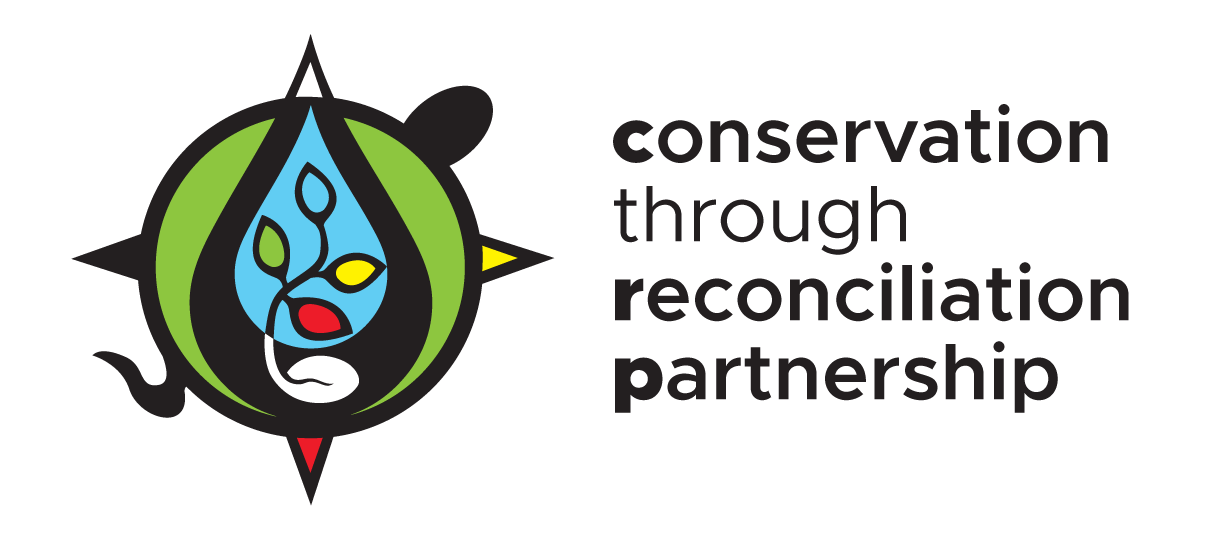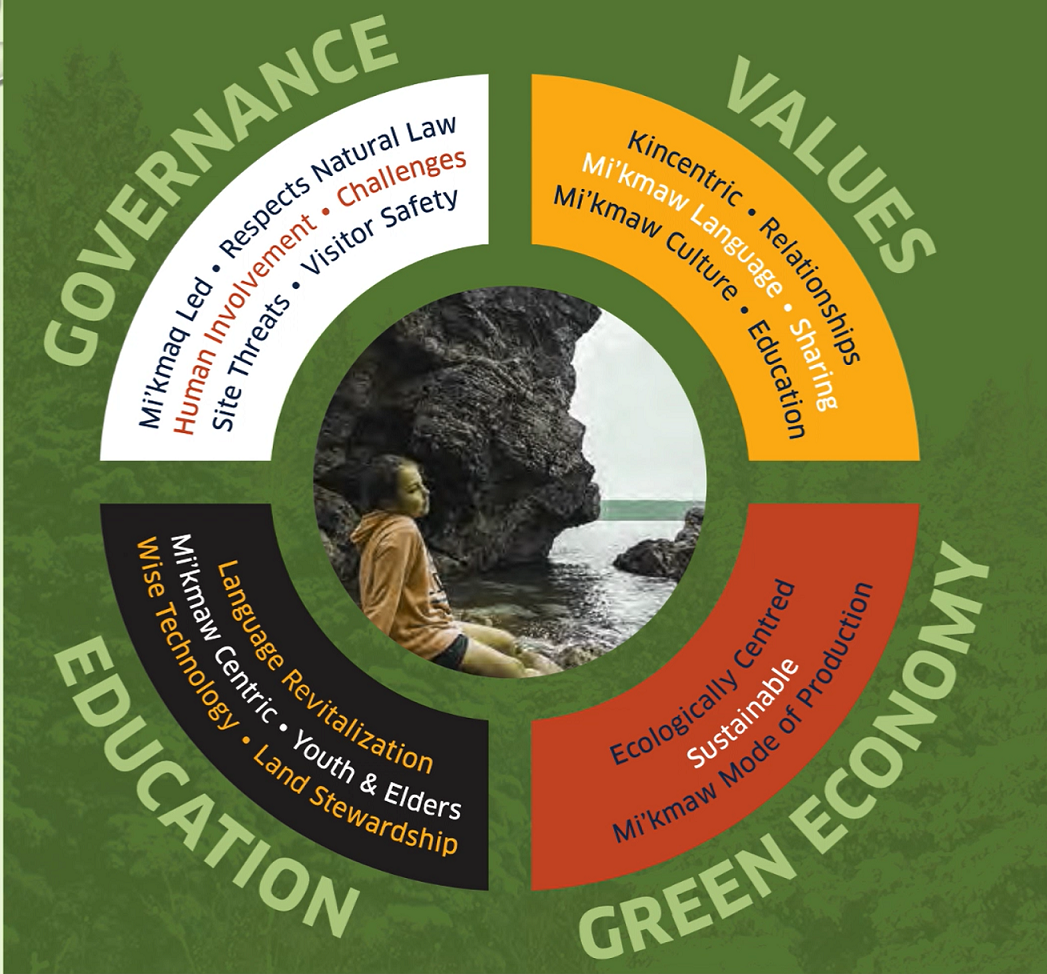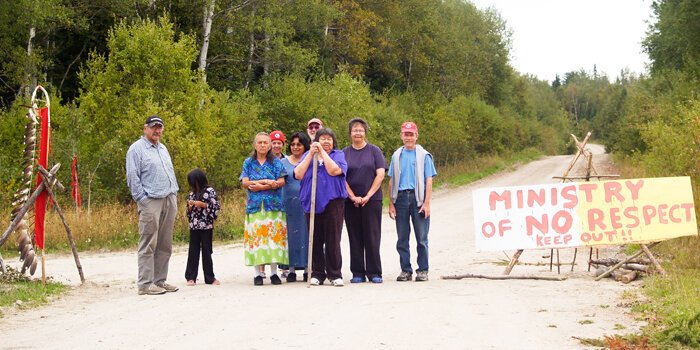2021 Year in Review
The Conservation through Reconciliation Partnership website is a space for partners and affiliates to share their knowledge, research and reflections about Indigenous-led conservation and CRP activities.
On behalf of the CRP, we’d like to thank and celebrate partners who have made meaningful contributions to the CRP blog, Virtual Campfire Series and growing collection of resources. We also extend our gratitude to all of our readers and supporters –your curiosity about and support for Indigenous-led conservation means the world to us!
Highlights from the past year, including written and audio blogs, webinars, and academic articles are summarized below with links to the full-length versions. We are looking forward to bringing you the 2022 edition!
Lighting a ‘good fire’: Indigenous fire knowledge and reconciliation in protected areas (blog)
By Colin Sutherland and the Indigenous Use of Fire Steering Committee
January 13 2021
This blog discusses the revival of Indigenous burning practices on the land, and challenges faced while confronting an ongoing history of fire management that attempts to exclude such knowledge and practice.
Read the full blog here
New life emerges only days after a prescribed burn in Point Pelee National Park, the traditional territory of the Three Fires Confederacy of First Nations, specifically, this is the home of Caldwell First Nation, and part of the house of Walpole Island First Nation. Photo by Colin Sutherland
2. Relational ontology and more-than-human agency in Indigenous Karen conservation practice (academic article)
By Andrew Paul, Robin Roth and Saw Sha Bwe Moo
January 28 2021
“In order to transform conservation biology through Indigenous perspectives, it is essential to pay attention to the relational world in which many Indigenous Peoples live. Doing so helps support a conservation practice attentive to the interdependence of all life in ways that uphold Indigenous Peoples’ rights of self-determination, cultural identity, and social relations with their ancestral lands. We argue that attending to these relations is essential to building community-based conservation collaborations with Indigenous Peoples that are more effective, sustainable, and just.”
Full citation:
Paul, Andrew; Robin Roth and Saw Sha Bwe Moo. 2021. Relational ontology and more-than-human agency in Indigenous Karen conservation practice. Pacific Conservation Biology.
3. Little Things that Matter in Decolonization and Anti-oppression Struggles: Lessons from the Community Engaged Scholarship Institute summer school for emerging scholars (blog)
By Emmanuel Tamufor
January 26th 2021
In this blog PhD student researcher Emmanuel Tamufor (Department of Geography, Environment and Geomatics/Guelph Institute of Development Studies) discusses lessons learned from the Community Engaged Scholarship Institute summer school for emerging scholars including the various forms of oppression, the importance of knowledge mobilization and the key role academic institutions must play in decolonization and anti-oppression efforts.
Read the full blog here
Figure 1 credit: Dr. Melissa Tanti (2020). Moving Bravely Forward: Anti-Oppression Strategies for Critical Community Engagement. PowerPoint presentation at the CESI summer intensive for emerging scholars.
4. Protected areas and extractive hegemony: A case study of marine protected areas in the Qikiqtani (Baffin Island) region of Nunavut, Canada (academic article)
By Warren Bernaur and Robin Roth
March 2021
“This article contributes to scholarly debates about the role of conservation in the reproduction of capitalist social relations with a case study on marine protected areas in the Canadian Arctic. Unlike historic parks in Canada, and modern parks in the Global South, new parks and protected areas in Canada are not cases of ‘primitive accumulation’ or ‘accumulation by dispossession’. Drawing on Gramscian historical materialism, we argue that their relationship to capital accumulation is primarily one of legitimization.”
Full Citation:
Bernaur Warren and Robin Roth. 2021. Protected areas and extractive hegemony: A case study of marine protected areas in the Qikiqtani (Baffin Island) region of Nunavut, Canada. Geoforum 120:208-217. https://doi.org/10.1016/j.geoforum.2021.01.011
5. A Dialogue with Leaders from Emerging IPCAs (webinar)
Moderated by Monica Shore; Panelists included Elder Flora Beardy, Shaomik Inukpuk, Matthew Munson and Justin Roy
March 18 2021
On March 18, the CRP and IISAAK OLAM Foundation co-hosted a dialogue about emerging IPCAs across Turtle Island/Canada featuring Elders, community members and leaders from Kitskiinan Kawekanawaynichikatek IPCA (York Factory First Nation/Cree Territory/Northern Manitoba), Arqvillit IPCA (Inuit/Nunavik Territory/Northern Quebec), Bistcho Lake IPCA (Dene Tha’ First Nation/Northern Alberta), and Aki Sibi IPCA (Kebaowek First Nation/Algonquin Territory/Southern Quebec). This webinar explored a diversity of experiences in establishing IPCAs and was designed for Indigenous governments and their allies who are establishing, stewarding, or just curious about Indigenous-led conservation and Indigenous Protected and Conserved Areas (IPCAs).
Watch the full webinar here
6. Our Approach to Research (blog)
By Robin Roth
March 23 2021
In this blog Robin Roth discusses how the Conservation through Reconciliation (co-hosted by the IISAAK OLAM Foundation, the Indigenous Leadership Initiative and the University of Guelph) approaches research, and how this approach differs from more conventional methods.
Read the full blog here
7. Natural Climate Solutions Series (webinars)
Our Natural Climate Solutions Series is made up of the following three webinars:
Nature and Carbon: Opportunities and Challenges for Indigenous Leadership
Moderated by Jason Rasevych; Panelists include managers of emerging forest management projects David Flood, Chris Angeconeb and Colin Shawinimash; technical practitioners Jamie MacKinnon and Joseph Pallant; and Steven Nitah and Jenny Brown.
Watch the full webinar here
Celebrating 20 years of Coastal First Nations: History, Governance and Lessons Learned
Moderate by Jason Rasevych and Cornelia Rindt; Presentation by Kelly Brown and Paul Kariya (prepared by Bessie Brown)
Watch the full webinar here
Indigenous-led Natural Climate Solutions in Action: The Confederated Tribes of Colville
Moderated by Jason Rasevych; panelists include Steven Nitah, Cornelia Rindt and Hank Cauley.
Watch the full webinar here
8. Emerging Indigenous Protected and Conserved Areas: The Unama’ki Mi’kmaw IPCA Project (blog)
By Trish Nash
April 12 2021
This blog is based on a presentation requested from the Conservation through Reconciliation Partnership (CRP) to the Williams Treaties First Nations in February 2021. It provides a report on the Unama’ki Institute of Natural Resources’ (UINR) efforts to establish an Indigenous and Protected Areas (IPCA). We hope that the blog can inform Indigenous-led conservation efforts across Canada, specifically around emerging IPCAs.
Read the full blog here
The IPCA decision-making framework is comprised of four central themes, each with a number of underlying principles. A Mi’kmaw youth at Kluskap’s Cave is in the centre of the circle.
9. Land Back: Governance for a Just World (webinar)
Moderated by Marilyn Baptiste; Panel: Aimée Craft, Rachel Plotkin and Julee Boan
April 21 2021
On April 21, 2021, we co-hosted a webinar with David Suzuki Foundation, Ontario Nature and Decolonizing Water with a film screening followed by dialogue and a Q & A. We explored how to support just and ecologically healthy futures when relationships are redefined and Indigenous sovereignty, rights and responsibilities are respected.
Watch the webinar here
10. National Protected Areas: Relationships and Co-Management (blog)
By: Kai Bruce
April 26 2021
Written by student researcher Kai Bruce (Master’s Candidate at Concordia University), this blog reflects on the efforts are underway by Parks Canada Agency to fulfill its commitments to reconciliation and renewed relationships with Indigenous peoples, how well these commitments are reflected in the relationship between Parks Canada and local Indigenous communities, and whether these efforts are responsive to the demands and needs of Indigenous Peoples.
Read the full blog here
Ski/quinzhee trip in Tàa'an Män (Lake Laberge) on Ta'an Kwäch'än Council territory. (Photo by Kai Bruce)
11. “Reconciliation” in undergraduate education in Canada: the application of Indigenous knowledge in conservation (academic article)
By Danika Billie Littlechild, Chance Finegan and Deborah McGregor
May 13 2021
“Our argument is threefold: first, teaching Indigenous content requires an approach grounded in transformational change, not one focused on an “add Indigenous and stir” pedagogy. Second, we assert that students need to know how to ethically engage with Indigenous Peoples more than they need knowledge of discreet facts. Finally, efforts to “Indigenize” the academy requires an emphasis on anti-racism, humility, reciprocity, and a willingness to confront ongoing colonialism and white supremacy. This paper thus focuses on the broad change that must occur within universities to adequately prepare students to build and maintain reconciliatory relationships with Indigenous Peoples.”
Full citation:
Danika Billie Littlechild, Chance Finegan and Deborah McGregor. 2021. “Reconciliation” in undergraduate education in Canada: the application of Indigenous knowledge in conservation.
12. Thinking About Land and Language (blog)
By Shalan Joudry
May 17 2021
Join Mi'kmaw/L'nu student, shalan joudry, on a walk through the forest of her community as she shares with us the inspiration that led her to begin her Interdisciplinary Ph.D. at Dalhousie University.
Listen to the full audio blog here
Photo credit: Dan Froese.
13. “Awakening the sleeping giant”: re-Indigenization principles for transforming biodiversity conservation in Canada and beyond (academic article)
By M’sɨt No’kmaq, Albert Marshall, Karen F. Beazley, Jessica Hum, Shalan Joudry, Anastasia Papadopoulos, Sherry Pictou, Janet Rabesca, Lisa Young, and Melanie Zurba
May 27 2021
“This paper introduces Indigenous principles for re-Indigenizing conservation: (i) embracing Indigenous worldviews of ecologies and M’sɨt No’kmaq, (ii) learning from Indigenous languages of the land, (iii) Natural laws and Netukulimk, (iv) correct relationships, (v) total reflection and truth, (vi) Etuaptmumk—“two-eyed seeing,” and “strong like two people”, and (vii) “story-telling/story-listening”.”
Full citation:
M’sɨt No’kmaq, Albert Marshall, Karen F. Beazley, Jessica Hum, shalan joudry, Anastasia Papadopoulos, Sherry Pictou, Janet Rabesca, Lisa Young and Melanie Zurba. 2021. “Awakening the sleeping giant”: re-Indigenization principles for transforming biodiversity conservation in Canada and beyond.
14. Indigenous Use of Fire in Protected Areas (webinar)
Moderated by Robin Roth; panelists include Amy Cardinal Christianson, Nathan Cardinal and Elder Rick Beaver
June 3 2021
On June 3, 2021, we co-hosted a webinar exploring Indigenous use of fire in protected areas in partnership with the Canadian Parks Collective for Innovation and Leadership and Canadian Parks Council.
This panel discussion focused on the importance of Indigenous fire knowledge in parks and protected areas and will discuss the exciting opportunities and challenges that exist at the nexus of fire management, reconciliation and Indigenous-led conservation.
Watch the full webinar here
15. Indigenous Laws in the Context of Conservation (report and accompanying blog)
Prepared by Larry Innes and Georgia Lloyd-Smith with contributions from Tara Rose McDonald, Patricia Lopez Kalalo, Sarah Jackson and Deborah Curran
June 16 2021
This report examines SGaan Kinghlas-Bowie Seamount Marine Protected Area in Haida Gwaii and Thaidene Nëné in Łutsël K’é Dene First Nation territory as two contemporary examples of how Indigenous laws operate alongside Crown laws within IPCAs. The report makes recommendations for how mutual recognition of Indigenous and Crown jurisdictions throughout the establishment, management and operation of IPCAs can advance effective conservation and provide a pathway for reconciliation.
Read the full report here, and the accompanying blog here
Thaidene Nëné, Land of the Ancestors. Photo Credit: Pat Kane
16. Enacting a Reciprocal Ethic of Care: (Finally) Fulfilling Treaty Obligations (blog)
By Elder Larry McDermott and Robin Roth
June 21 2021
This blog is taken from a chapter to be included in the book Transforming the Wild, published by University of Toronto Press edited by Andrea Olive, Karen Beazley and Chance Finnegan.
Read the full blog here
17. Indigenous Knowledge Systems in Environmental Governance in Canada (academic article)
By Deborah McGregor
June 23 2021
“Although government policy and legislation have evolved in attempts to treat Indigenous knowledge more holistically, the overriding paradigm of extraction remains essentially unchanged. Even the most recent frameworks will meet with limited success as a result. Appropriate and effective inclusion of Indigenous knowledge requires recognition of the systems that support it, which in turn necessitates support for Indigenous self-determination.”
Full citation:
McGregor, Deborah. 2021. Indigenous Knowledge Systems in Environmental Governance in Canada. KULA: Knowledge Creation, Dissemination, and Preservation Studies 5(1).
18. Establishing Indigenous Protected Areas for Future Generations in the Face of Extractive Capitalism (blog and academic article)
By Megan Youdelis, Justine Townsend, Jonaki Bhattacharyya, Faisal Moola, and J.B. Fobister.
July 14 2021
This blog post is based on our co-authored article, titled “Decolonial Conservation: Establishing Indigenous Protected Areas for Future Generations in the Face of Extractive Capitalism”, in review in the Journal of Political Ecology. Special thanks to former Chiefs Russel Myers Ross (Yunesit’in Government) and Marilyn Baptiste (Xeni Gwet’in First Nations Government) who reviewed drafts and whose insight and expertise were instrumental to telling the story of Dasiqox-Nexwagwez?
Read the full blog here, and the article here
Full citation:
Youdelis, M. & Townsend, J. & Bhattacharyya, J. & Moola, F. & Fobister, J., (2021) “Decolonial conservation: establishing Indigenous Protected Areas for future generations in the face of extractive capitalism”, Journal of Political Ecology 28(1). doi: https://doi.org/10.2458/jpe.4716
Grassy Narrows members at anti-logging blockade. Photo: David P Ball.
19. Input by the Conservation Through Reconciliation Partnership (CRP) into Parks Canada’s Horizon Scan (perspective blog)
By Faisal Moola and Megan Youdelis
August 18 2021
The Conservation Through Reconciliation Partnership (CRP) was invited by Parks Canada to participate in its Horizon Scan. The CRP was also asked to contribute priority research questions to help inform Parks Canada’s broader research agenda going forward.
This briefing note provides a summary of the CRP’s discussion and pertinent literature with an emphasis on social science issues around governance, cultural keystone species and other issues emphasized in the ICE Report. As these issues are inherently place-based, and thus most appropriately addressed at the local scale, it is important to emphasize that the CRP’s input is not on behalf of any Indigenous Nation in the country.
Read the perspective and the full Horizon Scan here
20. Pacific IPCA Innovation Centre: Anchoring a New Movement of Indigenous-led Conservation (blog)
By Monica Shore and Eli Enns
August 30 2021
In this blog Monica Shore (Executive Director & Co-Founder, IISAAK OLAM Foundation ) and Eli Enns (Co-Founder & President, IISAAK OLAM Foundation ) explain the need for IPCA Innovation Centres, discuss the establishment of the Pacific IPCA Innovation Centre, and talk about the future establishment of IPCAs across Canada.
Read the full blog here
Photo: An aerial image of Clayoquot Sound, British Columbia. Photo Credit: Jeremy Williams
21. Re-centring on the Land – Towards an Agenda for Indigenous-led Climate Policy (blog)
By Graeme Reed
September 8 2021
This blog post is based on our co-authored article, titled “Indigenizing Climate Policy in Canada: A Critical Examination of the Pan-Canadian Framework and the ZéN RoadMap,” published in Frontiers in Sustainable Cities (DOI: 10.3389/frsc.2021.644675). Authors include Graeme Reed (University of Guelph), Jen Gobby (Concordia), Rebecca Sinclair (Indigenous Climate Action), Rachel Ivey, and H. Damon Matthews (Concordia University).
Read the full blog here
An iceberg floats in the water as birds fly overhead.
22. Building a Foundation for Reconciliation: The Role of Architecture, Engineering, and Construction in Indigenous Protected and Conserved Areas (webinar)
Panelists include Eli Enns, Eric Wilson and Kear Porttris
September 30 2021
On September 30, 2021, in partnership with IISAAK OLAM Foundation and RJC Engineers we hosted a dialogue that explored how architecture, engineering, construction, and related industries can honour the Truth and Reconciliation Commission's Calls to Action through supporting Indigenous-led conservation. Presented by the IPCA Economics, Infrastructure and Finance Stream, this foundational session aimed to help industry professionals understand how reconciliation relates to Indigenous Protected and Conserved Areas (IPCAs) and how they can support Indigenous Nations in their establishment.
Watch the full webinar here
23. Restructuring our Relations: Legal and Policy Dimensions of Indigenous-led Conservation in Ontario and Beyond (webinar)
Panelists include Estella White, Larry Innes, Kerrie Blaise, Aimee Craft, Ian Attridge, and Lenore Keeshig
October 13 2021
On October 13, 2021, we co-hosted a dialogue with the Osgoode Hall Law School to explore the legal and policy opportunities and challenges of Indigenous-led conservation in Ontario and other regions. Panelists discussed key concepts and principles behind Indigenous-led conservation, existing and emerging models, and key challenges to implementing these solutions.
This webinar was presented by the Conservation through Reconciliation Partnership’s Domestic Law and Policy Stream and the Osgoode Environmental Justice and Sustainability Clinic.
Watch the full webinar here
24. Urban parks are ‘landscapes of opportunity’ for Indigenous conservation leadership (perspectives)
By Robin Roth and Faisal Moola
November 8 2021
In this blog Robin Roth and Faisal Moola, members of the Conservation through Reconciliation Partnership Leadership Circle, discuss the future of IPCAs in urban areas.
Read the full blog here
A photo of a cityscape with trees in the foreground.
25. Respect and Responsibility: Integrating Indigenous Rights and Private Conservation in Canada (report, audio blog, and webinar)
By Larry Innes, Ian Attridge and Skeena Lawson with support from the Nature Conservancy of Canada.
November 9 2021
This report provides guidance for private land conservation organizations seeking to adapt their practices and build respectful and appropriate relationships with Indigenous Nations. It is also an important tool for conservation organizations seeking to understand the legal and policy landscape that frames key relationships with Indigenous communities in Canada and abroad.
The report is accompanied by an audio blog featuring interviews with Larry Innes and Ian Attridge, as well as a webinar with panelists Larry Innes, Ian Attridge, John Borrows, Patricia Saulis, Kelsey Wierdsma, Megan Pagniello and Nathan Cardinal.
Read the full report here, listen to the audio blog here, and watch the webinar here











